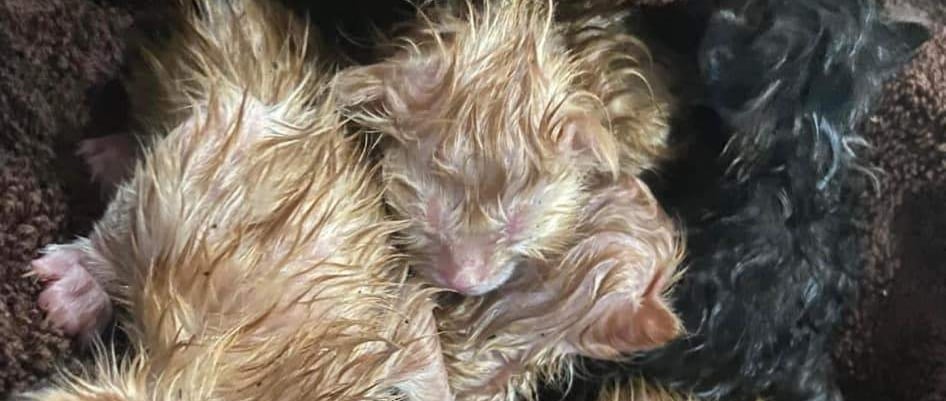What is a neonatal kitten and how do you care for one?
Neonatal kittens, those in their first few weeks of life, are entirely dependent on their mother or caregiver for survival. Our latest blog post offers an in-depth guide on identifying and caring for these fragile newborns. Learn how to recognize neonatal kittens by their age, physical characteristics, and behaviors. Understand the critical risks they face, such as hypothermia, dehydration, and infections, and discover essential care practices to ensure their well-being. From providing warmth and proper feeding techniques to stimulating elimination and ensuring hygiene, we cover all aspects of neonatal kitten care. Additionally, we emphasize the importance of early socialization and provide tips for creating a safe, nurturing environment. If you find yourself caring for orphaned neonatal kittens, our guide offers valuable insights to help them thrive and grow into healthy adult cats.
BLOG POSTS
7/10/20242 min read


Neonatal kittens are newborn kittens who are in their first few weeks of life, typically from birth up to around four weeks old. During this stage, they are completely dependent on their mother or caregiver for survival.
How Do You Know if the Kitten You Found is Neonatal?
You can determine if a kitten is neonatal by observing certain physical and developmental characteristics:
Age Range: Neonatal kittens are usually from birth to around four weeks old.
Eyes: Newborn kittens are born with closed eyes, which start to open around 7-10 days old.
Ears: At birth, kitten ears are folded and closed. They begin to unfold and open within the first week.
Teeth: Kittens are toothless at birth and start getting their milk teeth (deciduous teeth) around 2-4 weeks old.
Coordination: Very young kittens are unable to stand or walk steadily until around 3 weeks old.
Behavior: Neonatal kittens are entirely dependent on their mother or caregiver for feeding and toileting. They are unable to regulate their body temperature well and need warmth from their environment or a heat source.
If the kitten you've found exhibits these characteristics, it is likely neonatal.
What Risks Do Neonatal Kittens Face?
Neonatal kittens face several risks due to their fragile nature and developmental needs:
Hypothermia: Difficulty regulating body temperature can lead to hypothermia, especially if they are exposed to cold environments.
Dehydration: Neonatal kittens are highly susceptible to dehydration, particularly if they are not feeding adequately.
Infections: Without antibodies from their mother’s milk, kittens are vulnerable to infections that can become severe.
Poor Nutrition: Inadequate feeding or improper nutrition can lead to failure to thrive and developmental delays.
Aspiration: Incorrect feeding techniques can lead to milk entering the kitten's airways, causing aspiration pneumonia.
Predation and Environmental Hazards: Without protection from their mother, kittens are at risk from predators and environmental hazards.
Socialization Issues: Lack of early human interaction can lead to behavioral problems later in life.
How Do You Care for a Neonatal Kitten?
Caring for neonatal kittens requires specialized attention and knowledge:
Warmth: Keep the environment warm (85-90°F or 29-32°C) using a heating pad set on low or a warm water bottle wrapped in a towel.
Feeding: Provide frequent feedings of kitten milk replacer (KMR) every 2-4 hours, including throughout the night, using a small syringe or kitten nursing bottle.
Stimulation: After feeding, gently stimulate the kitten’s anal and genital area with a warm, damp cotton ball to encourage elimination.
Hygiene: Keep kittens clean and dry, using a soft cloth dampened with warm water if they become soiled.
Monitoring: Watch for signs of health issues such as dehydration, lethargy, or difficulty breathing, and seek veterinary care if needed.
Socialization: Handle kittens gently and frequently to aid in their social development.
Environment: Provide a quiet, secure space for mother and kittens, ensuring cleanliness and comfort.
By providing dedicated care and monitoring, you can significantly improve the chances of neonatal kittens thriving and growing into healthy adult cats. If you find yourself caring for orphaned neonatal kittens, consider reaching out to a local animal rescue or veterinarian for guidance and support. Early and proper care is crucial for their well-being.
Connect with Us!
1014 Manikin Ave S,
Lehigh Acres, FL 33974
© 2024. Cro and Oli Designs. All rights reserved.


(828) 216-1999
